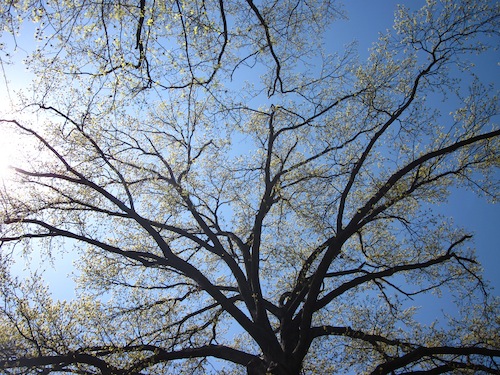
The easy part was posting other people’s answers to the question: “Why Do You Write?” in Part One. Now comes the tricky part: answering the question myself.
One of the first poems I ever wrote, at age 5, went like this:
I like crackers
I like bread
Because they’re both dead
The companion piece to that poem was this little gem:
I like mothers
I like fathers
Because they’re both both dead
I’ve always written from dark places. Or is it the writing that calls those places up? More particularly: is it the sounds and rhythms and linkings of (overheard, read, imagined) words that call them up? Whatever the answer, I record those sounds and feelings and images, then I put them in orderly lines. I purge, then control—both acts are essential to me.
I began to confuse writing from the dark places with living in them at age 12. Most likely this had to do with the copy of Ariel my dad gave me for Christmas that year, much to my mom’s dismay. The book was a revelation to me. And to scores of other teenage girls who read her at that crucial age, including Camille Guthrie, who writes about her infatuation with Plath here. I idolized and idealized Plath and her abbreviated life. I loved the work, of course, and still love it, but like many others, I was drawn to the story, too, the dark romance of it all: the early suicide attempts, the fierce but doomed romance with Ted Hughes, the harried struggle to balance writing ambitions with family demands, and finally, yes, of course, finally, the suicide. Stepping off that cliff and diving, plunging into the darkest place of all.
And I
Am the arrow,The dew that flies
Suicidal, at one with the drive
Into the redEye, the cauldron of morning.
Here, in the poem “Ariel,” the darkness isn’t dark at all: it’s a powerful, cleansing red light, one that will burn away the indignities of everyday life and transform the speaker into an arrow of fire. So pure, so clean: untouched and untouchable. When I read this poem, I thought: This is what an artist is, this is what the writing life must be.
I was too young to know this was foolish and untenable. Even reading those lines now, and thinking about her story, I feel a passing romantic thrill. But some time ago, when I passed my 33rd birthday and thought, now I’m older than Plath lived to be, I realized all I felt was the waste of it all, the barren ugliness of what Plath must have endured in those last years. Struggling alone with the kids after her philandering husband had bailed, shivering in that coldwater flat in London at 4 am, writing out what would be the Ariel poems in the hours before her kids woke up and the incessant demands of motherhood would begin. I could finally see the misery—aside from the glory of those poems burning her up inside, flying out of her. The dark places may be romantic, but they’re perilous, nasty and winnowing, too. You can’t live in them, or you’ll live miserably, or die.
So I write from dark places, but I don’t linger there. Now that I’m about to pass into middle age, now that I’ve had a son and want to hold tight to each joyful, exhausting, bountiful, maddening day, I’ve dropped all interest in darkness and doom. Except in my poems. Lately I’ve been writing about murder and apocalypse. Happy stuff. But I feel like I’ve learned, slowly and painfully, how to channel the insights gained from touring the abyss into my work and then get the hell out of there.
I realize I’ve now strayed far from the original question Wagner posed; I’m answering “How Do You Live as a Writer?” vs. “Why Do You Write?” But both are important, and obviously linked. Now I’ll return to that original question with this quote from Plath’s “Letter in November,” which features a “red” very different from the scorching red light of “Ariel”:
There is a green in the air,
Soft, delectable.
It cushions me lovingly.I am flushed and warm.
I think I may be enormous,
I am so stupidly happy,
My wellingtons
Squelching and squelching through the beautiful red.
I write because I love this life. I love plumbing its depths, but I love “squelching through the beautiful red,” too. I feel privileged to be able to do both, sometimes in the same moment of being.
Laura Sims is the author of three books of poems: My god is this a man (2014), Stranger (2009) and Practice...
Read Full Biography

